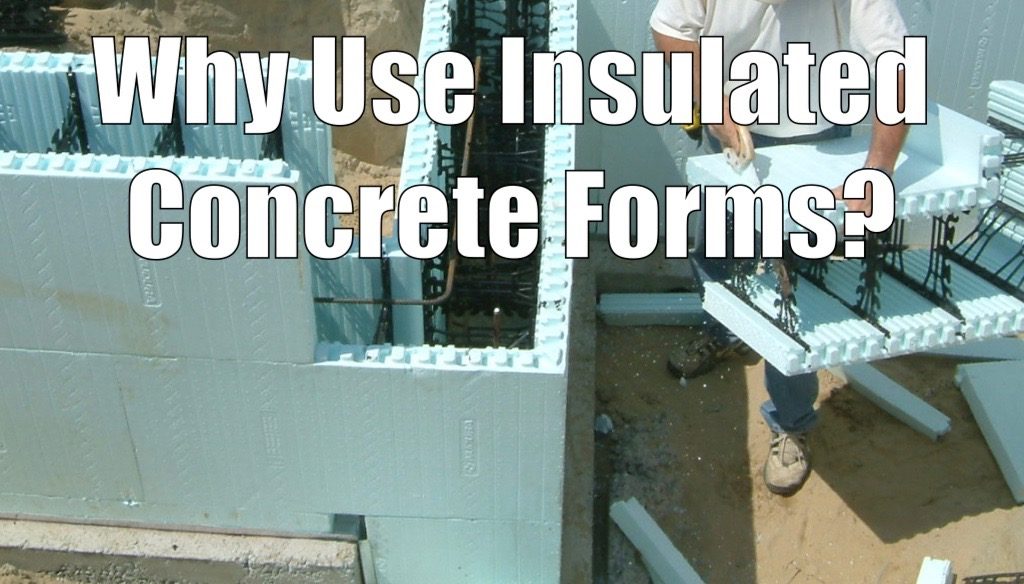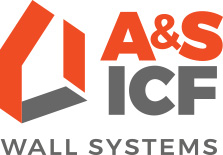
Insulated concrete form (ICF) is a formwork system (temporary or permanent molds into which concrete is poured) for reinforced concrete. Made from panels of Expanded Polystyrene (EPS) foam insulation, ICF serves as a permanent interior and exterior foundation for walls, floors, and roofing. Learn more about the definition of ICF here.
As an Alberta contractor, at some point you’ve likely considered ICF for your projects. If you remain on the fence about using insulated concrete forms you will want to read ahead to find out why ICF may be the perfect solution for your next build.
5 Reasons Why Your Alberta Construction Company Should Consider Insulated Concrete Forms
1. Cost Efficiency
For starters, ICF is one of the most cost efficient forms of concrete building. While the prices of various building materials around the province continues to fluctuate, ICF market prices remain consistent. This stability allows you to provide an accurate quote when negotiating an up and coming project for a client, no matter how far off in the future the build is anticipated to begin. The client will appreciate your ability to standby an estimate. You may have heard that ICF can add initial cost to a build but this is debatable. Given that with ICF the building insulation step has been removed from the equation and a significant portion of required skilled-labour is reduced the cost difference is negligible. If your client expresses concern over the perceived cost, dismiss it immediately by noting that the cost of ownership of an ICF constructed building is significantly less that derived from traditional methods. Because insulation is far superior utility expenses are far lower. Every residential/commercial/industrial property owner in Alberta (with well below-freezing autumns/winters and stifling summers) realizes the longterm financial implications of that. The sturdy construction (more on this below) also minimizes the need for future upkeep and repair to the property, further reducing longterm expenditure. In fact, the return on investment (ROI) for the extra construction cost (if any) of ICF is within three to five years. Simply put, when it comes to cost efficiency insulated concrete form construction leads the pack by a long mile.
2. Time Efficient
Insulated concrete forms are about as ready-made as concrete construction can be while remaining customizable to any design feature. The learning curve for any contractor adopting ICF construction is an easy one so even if it’s your first time the turnaround time on a build is still faster than that of traditional methods. The genius of ICF is that while extremely sturdy, blocks and forms are lightweight, allowing your crew to whisk through the foundation installation quickly without excessive energy expenditure. Subcontractors joining the process after the concrete pour will also appreciate the ease of which ICF allows them to do their job. Chases (and other openings) for installation of mechanical systems are cut (with a knife or saw) into ICFs without effort. Drywall fastening (or lap siding, etc.) is also expedited. In addition, your crew will appreciate ICF when it comes to corrections that need to be made at any point in the process. An opening can be sawed out and re-formed without significantly setting back the schedule.
3. Sturdy
Insulated concrete forms are load bearing, giving the walls unmatched strength and durability. Think of ICF as a reinforced concrete wall. It is sturdy and far less susceptible to damage than walls constructed from traditionally-poured concrete. As ICF panels are stacked, structural steel (or rebar wires) are installed inside. When the stacked panels reach the predestined height, concrete is poured into the cavity. An impenetrable and unshakable wall and foundation is created. Whether during the process or after-completion you’ll gain peace of mind in knowing that ICF constructs remain resistant to anything thrown its way – from fires (ICF polystyrene foam does not support combustion) to extreme weather and beyond.
4. Climate Ready
As noted in item #3 above, from a builder’s perspective ICF walls can take the brunt of any climatic force. Seasonal windstorms, hurricanes, and tornadoes included. And as noted in item #1 (cost efficiency) ICF’s biggest pitch to clients includes thermal buffering that protects properties from outdoor temperature extremes. Air infiltration in an ICF building is also minimal thanks to the EPS foam insulation and concrete which provides continuous air barriers, rendering wall cavities convection current free. Energy expenditure can be cut in half!
5. Sustainable
Much of of the above leads to the next logical conclusion. Insulated concrete form construction is more eco-friendly than traditional methods. As a builder in Alberta you know how important it is when it comes to abiding by the province’s National Energy Code for Buildings (NECB) 2011 edition as it applies to energy efficiency requirements (under section 9.36). Securing Nudura ICFs for your build also equals LEED credits. The use of recycled materials and significant waste reduction during the construction process contributes to LEED while the longterm energy performance and improved indoor air quality is simply better for the environment and all who reside, function, and/or operate within an ICF build.
Ready to learn more about ICF for your Alberta construction project/s? Contact A&S ICF at your earliest convenience.
